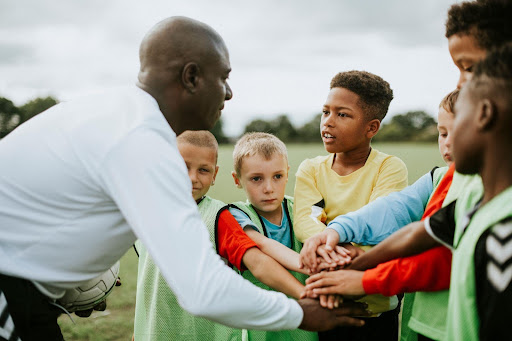If you have ever felt like you’ve become your kids’ personal taxi service because you spend so much time transporting them to and from a seemingly endless list of afterschool activities, you’ve probably asked yourself if all the hassle is really worth it. If so, you certainly are not alone, and there is no reason to feel guilty for longing for just one evening per week that doesn’t involve running to one place or another.
While your feelings are totally valid, that doesn’t mean you should pull your kids out of their extracurriculars. Afterschool activities provide a wealth of benefits for your child, and those benefits are well worth the sacrifice of all those hours you have to spend behind the wheel or sitting on the sidelines. Here are a few of the reasons it’s so important for your kids to participate in extracurricular activities.
Socialization
Kids spend most of their day in school around other kids their own age, but that doesn’t necessarily provide a lot of time to socialize. During the school day, they have to spend most of their time quietly learning and working on assignments, so they don’t really get much time to interact with their peers.
According to Dr. John Mayer, extracurricular activities help kids develop social skills because they provide more opportunities for them to talk and interact freely. During afterschool activities, they are able to practice their socialization skills and learn what works and what doesn’t. Being able to experiment freely outside of the structured classroom environment allows kids to better develop these important skills.
Building Friendships
This goes hand in hand with socialization. Because kids are able to socialize more freely during extracurriculars than during school hours, they are often able to build better, stronger friendships. Most kids have friends in school, too, but the connections they make during their afterschool activities evolve from sharing at least one major interest between them, and this can help them forge stronger relationships.
Teamwork
Not all extracurricular activities involve teamwork, but a lot do. The most notable, of course, are sports teams. If your son or daughter plays baseball, softball, football, soccer, tennis, volleyball or any other team sport you can think of, they will have to learn to work with others as a cohesive unit. Teamwork is also important in many non-sport organizations, such as trivia teams, math clubs and debate clubs.
Being on a team or a part of a group teaches kids interpersonal skills, how to work well with others — even those they don’t particularly like — and much more. These skills, of course, help them later in life when they need to deal with co-workers and members of other teams or organizations.

Discipline
When you are involved in an extracurricular activity, there is usually someone else depending on you. The quarterback of the football team can’t just decide not to show up on Friday night, and student council president can’t just skip meetings whenever she feels like it. All members of the team or group have to show up when they promise to — unless there is an illness or emergency, of course. When your child commits to being involved in an extracurricular activity, they will learn discipline simply because they have to honor that commitment.
They also learn discipline as they work toward becoming the best they can be in their activity. Whether that means working hard to sell bulk t shirts at a school fundraiser or spending countless hours in the weight room developing the strength to beat the school’s bench press record, it takes a lot of discipline to work toward getting better at something.
Improved Academic Performance
Multiple studies have shown that students who participate in extracurricular activities do better in school. They get better grades, behave better in the classroom and develop better study habits than their peers who are not involved in afterschool activities. Whether they are involved in team sports, school clubs or any other type of activity, the effect is the same.
Kids who regularly participate in various activities outside of regular school hours usually show greater levels of attention in the classroom. They are more engaged in their studies, and they show less tendency to engage in violent or problematic behavior both in school and at home.

Brighter Futures
Yes, college admission officers tend to look favorably on students who were involved in extracurricular activities in high school. That isn’t the only way that extracurriculars can help kids later in life, though. The habits and skills your child learns during these activities help shape their future in numerous ways. Student-athletes often develop lifelong healthy habits like exercising regularly and eating right, for example. Time management and organizational skills can help kids later in life, too. Even when your child is selling bulk t shirts to raise money for the choir or manning the booth at a bake sale for the tennis team, he or she is learning valuable skills that can be used later in life.
Conclusion
Extracurricular activities are important for kids for so many reasons. The ones listed here are just a few of the reasons why — no matter how tiring it gets — being your kid’s personal chauffeur is totally worth it. Just remember, though, not to overload your kids with activities. Help them decide on a couple things that they really enjoy and are passionate about, and encourage them to stick with those activities. Make sure they don’t get overwhelmed and you will be well on your way to raising your kids to become healthy, well-rounded adults. So dust off that “Mom’s Taxi” hat, and get those kids to practice!









